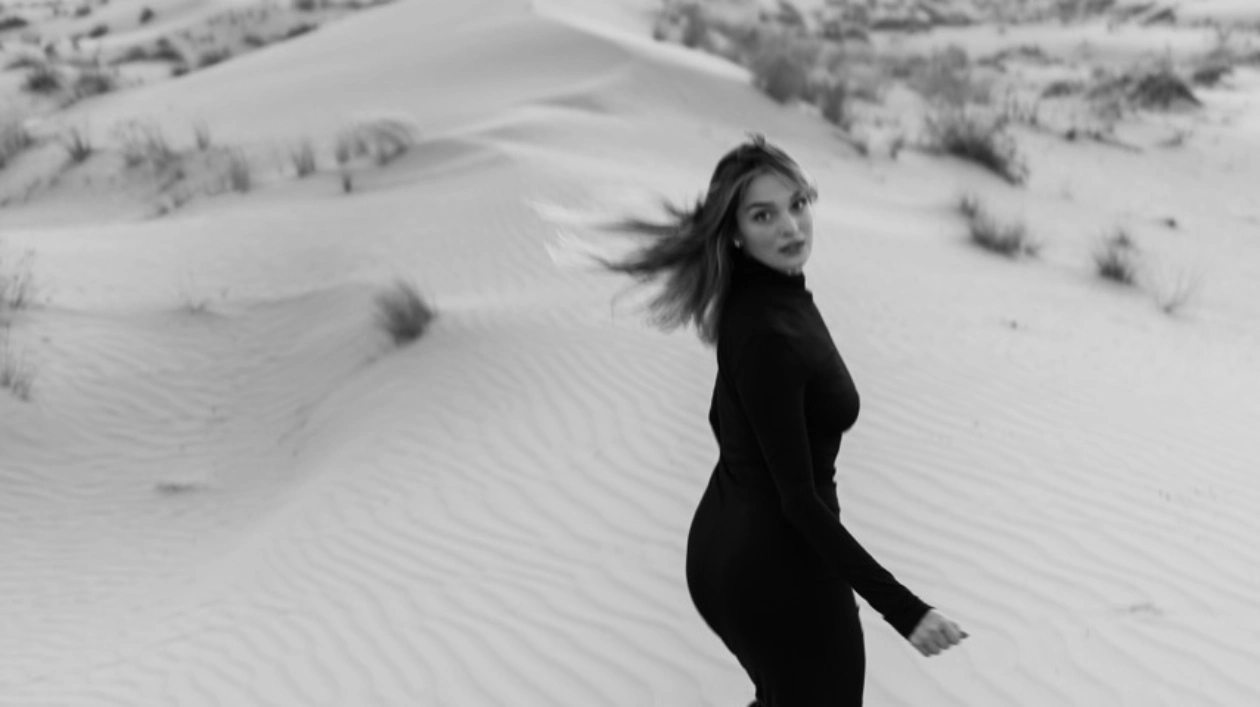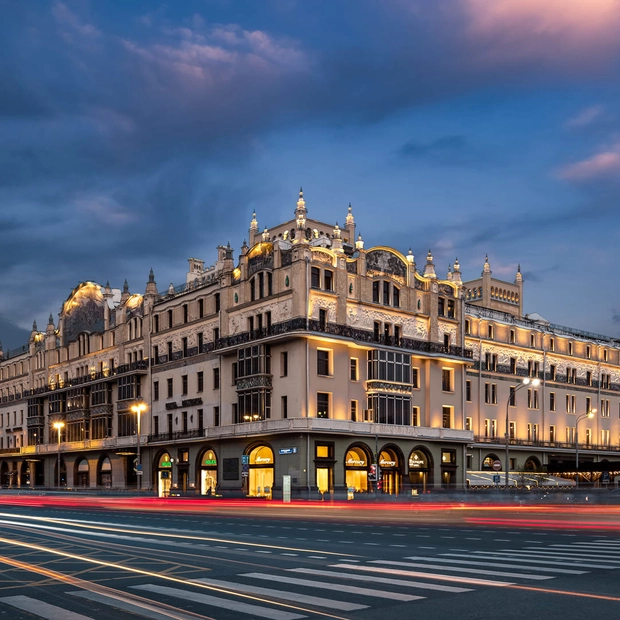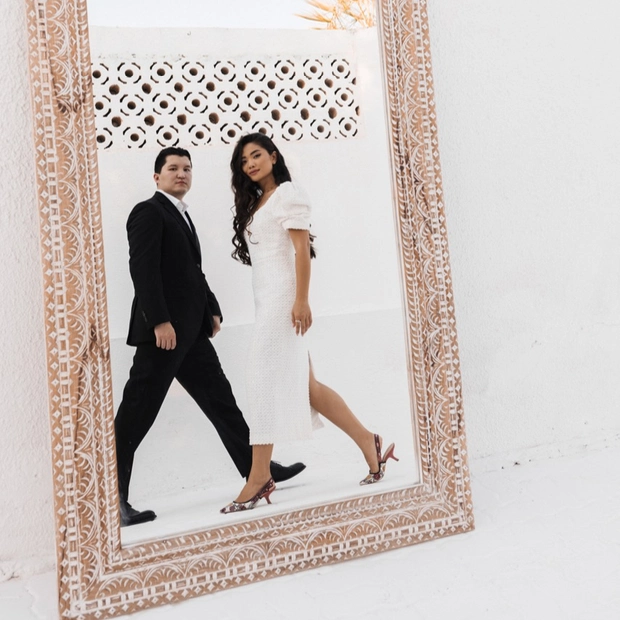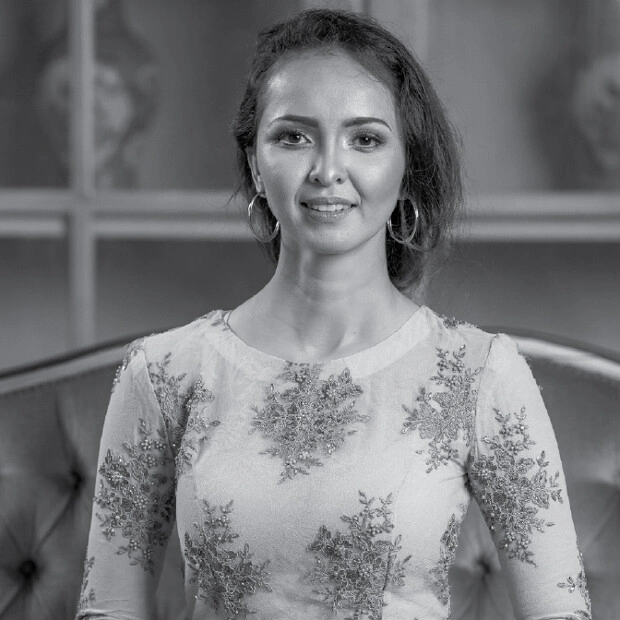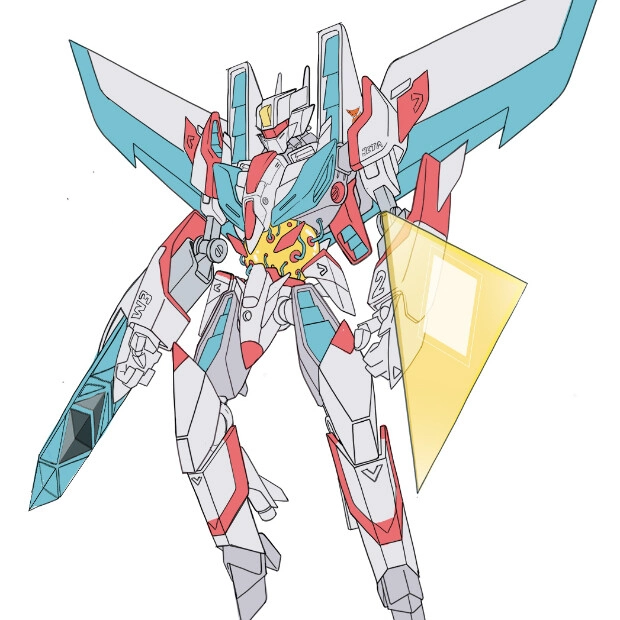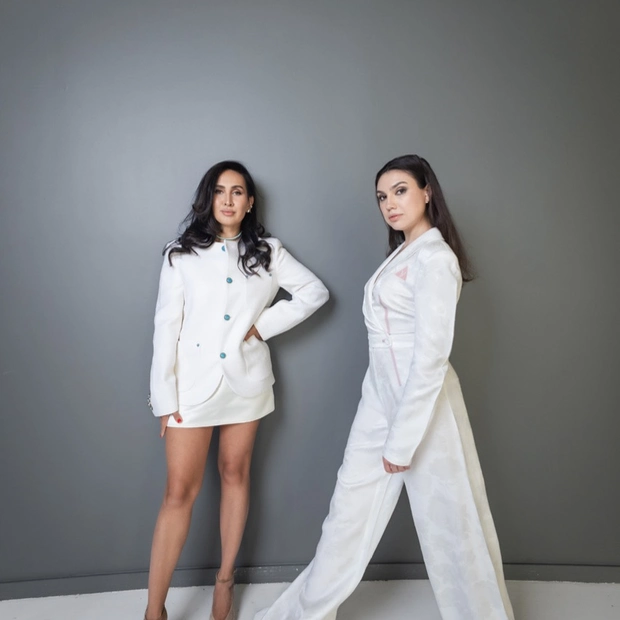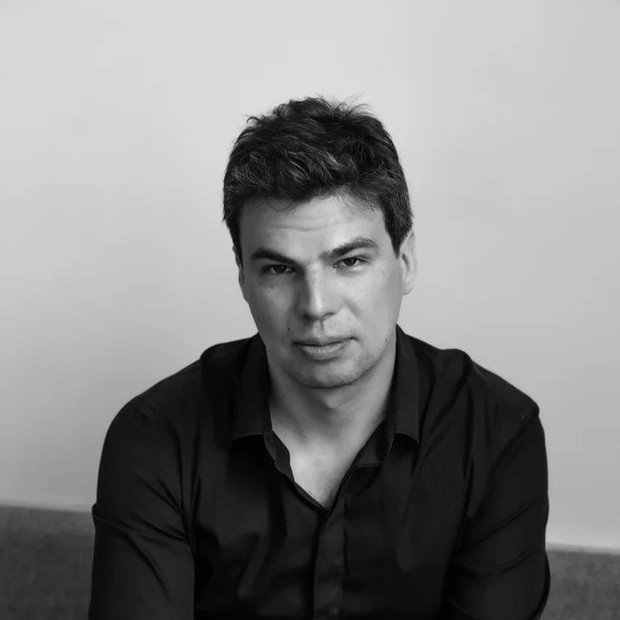Any difficulty is just a challenge
Every successful entrepreneur has their own path. At first glance, it may seem a mystery how a girl from a one-room flat in Donetsk built a thriving business in Dubai. But all difficulties can be overcome, and although new ones will inevitably arise, there is confidence that she is capable of so much more. For her, these are simply steps, each leading towards a goal. Any complexity is just a task that always has a solution, believes Olga Orda, owner of the ORDA Design brand.
It began in my early childhood, when I was often left home alone in our 36 square metre flat. Imagine this: 20 m2 — kitchen, bathroom, hallway and one 16 m2 living room that was also a bedroom, study, and dining room where the three of us — mum, dad and I — managed to live in peace and love. Even then, I always tried to adapt the space, organise my own corner, so I frequently rearranged the furniture in search of the optimal solution.
Architecture and working with space attracted me even then, but our city didn't have a relevant higher education institution. However, my beloved Donetsk National Technical University was very prestigious, with a high level of education, and I was most drawn to the Faculty of Computer Engineering and Informatics. So, I obtained my first degree with honours in information technology, for which I am very glad and grateful. In my second year, I became acquainted with the program used by all top-class engineers and architects — AutoCAD Autodesk. This software captivated me and my attention; I studied an entire course on it. At the same time, renovations were underway in my parents' new flat, and with this experience, I began creating all the drawing documentation for the builders: tile layouts, flooring, walls, elevations, ceiling plans, lighting, electrics, and so on. No one taught me this, but I intuitively understood how to proceed. A programmer's education laid the foundation for the logic, system and structure of my thinking; most importantly, I realised how much I enjoyed it.
In 2014, difficulties began in Donetsk, the ground was slipping from under our feet, and all plans were collapsing. I had just finished renovating my own large flat but had to leave and start over. At that moment, I was at a loss and decided: if that's how it is, I'll pursue what I've always liked and dreamed of, but fear held me back. I started renovating for friends, my brother, myself — everyone around me, while simultaneously working in a software development company, involved in implementation and adaptation to client requests.
And then one day, which was a serious "sign" for me, I saw on Instagram that a girl was planning to fly to Italy to study interior design at the Instituto Marangoni. Thus, a few stories pushed me to a decision: why not? And I went to study in Italy. I was going more to study the Italian spirit, the Italian approach as a "trendsetter" in the world of design. I already had all the technical skills from practical experience, and I would have been happy to have a diploma as documentary confirmation of my qualifications.
I devoted that year in Italy 100% to my studies — I didn't lift my head from studying the history of design, the approaches of art figures, developing our projects; I soaked up the local culture, the local approach, perspective, and savoured a cup of Italian coffee with a pistachio croissant in the mornings. At the Instituto Marangoni, they taught us to seek inspiration in everything: in the fold of a wool scarf, in the structure of a stone, in the pattern of veins on a bay leaf. Any interior design project is a complete story, where there is an exposition, setup, plot development,climax, and resolution, reflecting the meanings and essence of the client. It's so important to convey through the walls of a home all the depth of the person for whom the home will be a real place of strength, filling them with energy and inspiration.
Training in 3D Max courses began with the teacher asking, "What are you designers doing here; don't you work with hand-drawn sketches?" At the time, I was surprised by his question, but when I got to Italy, creating sketches started to bring me immense pleasure. Again, drawings, rulers, triangles — it all seemed simple and natural. But there were also other assignments that expanded the standard framework of thinking about things. After finishing my studies there, I returned to Russia and continued working in my new profession.
Dubai had long beckoned me — first as a touristic dream, then as something more. The thought flashed through my head: one day I'll move here to work. But it was like a scene from a film — sort of there, but not entirely real. And then, after some time, I came here a year before all the events happened — of my own volition. I calmly opened a company, a legal account — without any hype. From scratch. There was no fear; although many things could have been frightening, I didn't notice the obstacles; everything fell into place on its own. After moving from my hometown to nowhere in 2014, the whole world became home for me, and the English language opened doors to different countries: Italy, Dubai, Moscow, London. You can find your people anywhere, without fear of change.
Upon arriving in Dubai, I had only one acquaintance, with whom views soon diverged, and I was left alone. The UWILL community saved me, as well as my openness and sociability. A colleague from Bali advised me to attend the community's birthday, which was on June 1, 2021. And everything changed. Already a year later, there were 40 people at my own birthday. The community later disbanded due to world events. But it gave me support in the right amount at the right moment, and for that I am very grateful.
Then everything in Dubai gradually fell into place. During that period, I was more of a craftsman; work proceeded in its own way. I fully developed and implemented projects myself with enthusiasm and perseverance — searching for suppliers and shops. The existing experience from former CIS countries wasn't entirely relevant, as there are no large construction centres here like Petrovich, Leroy Merlin, Expostroy. Gradually my company grew: first I worked alone, then I hired a designer, then a second, a third. Now I'm more involved in the strategic and ideological issues of the company, while my team develops projects and fully controls the process of implementation and delivery.
The first client appeared thanks to the UWILL community. At the very first networking event, where I didn't know anyone, a conversation with a tablemate led to our collaboration. Then a client from Kyiv ordered the creation of a design project online, and it was implemented under my remote supervision. In terms of the work process, the essence is the same everywhere, but the approach differs vastly. Networking played a key role at the start of the journey. Clients came through recommendations, and one day my company was recommended to a UAE citizen, which was an exhilarating experience.
Working in Dubai requires heroism. Here, speed is the main challenge. In our countries, projects last a year and a half; there's no time for that here. Only clients with experience and means can afford long-term projects. But everything is solvable! We work with particular interest on commercial premises, where each mall has its own designer with a unique vision; here, as nowhere else, correctly structured communication is necessary. Finding common ground and defending your vision for the future project is no easy task. However, communication is highly valued here, and if you manage to find an approach, the road is open.
Even taking my example, where the path begins without significant investment in the business, success is possible. My main investments in the first months went into living and staying in Dubai. My company has a remote work format, so although designers and architects live in Dubai, there's currently no need for an office; all meetings productively and effectively take place at sites or in showrooms. We live in a modern world of technology, which I love very much. All work is organised using Zoom, Bitrix, Workspace and additional systems. Clients rarely require office meetings, preferring to discuss business on-site.
But you can't do without a good team here, as everywhere. I built it without experience, like a sculptor creating a masterpiece. A project manager, two designers, three visualisers and two architects — each of them is important. An accountant and assistant complete this harmony. I'm constantly improving the system together with them and feel a deep gratitude towards them.
The work of the team and the recognition of partners is the key to success. Feedback from contractors is especially valuable. Some of them clearly express their desire to continue working with us, precisely because they like our approach to work, our speed, the quality of technical documentation provided, the communication built. This recognition is worth its weight in gold. And such a symbiosis of the designer-architect-construction team yields stunning results.
The Royal Atlantis project is our significant shared achievement. It's a well-known, impressive property requiring high quality from our work. The exterior, cubic architecture, and the view from its huge panoramic windows are already a striking part of the interior. In fact, this is what we repeated in the refined yet so stylish and perfectly fitting lighting elements.
Before starting a project, we always conduct a premises audit together with an experienced technical specialist. It's important to know the condition of the walls, floor, windows, plumbing, boiler, pipes, kitchen, doors. We capture everything in photos and videos, providing a detailed description. Clients see the audit results, and here it's easy to make decisions based on facts; this is the next step towards trust — honesty, transparency, argumentation.
The facade is supposedly not our area of responsibility, but its condition affects the implementation process, and, of course, without facade restoration, it's forbidden to proceed with interior work. If a wall requires repair, intervention is necessary. We turn such a difficulty into tasks with a specific algorithm and deadline for resolution. All difficulties are translated into tasks with deadlines and responsible persons. And the result is successfully implemented projects as an example of our well-coordinated work.
The Port de la Mer project, inspired by the architecture of Saint-Tropez, has its own peculiarities. Saint-Tropez is about history, atmosphere, and quality. Here there were full-cycle projects from replacing all interior finishes, working out internal communications to improving soundproofing and waterproofing walls. We organised meetings with builders, designers, restoration engineers for the facade part. Designers responsible for the visual part participated in discussions of the technical part, as these are interconnected. Sometimes in such cases, we involve developers for joint problem-solving. Then we present the client with options with different solutions and costs.
Yes, all this is energy consuming. But what makes a designer successful is work, ever-new experience, the desire for growth, and self-belief regardless of anything. There's an important rule — never leave open questions that arise at any stage of cooperation with a client, supplier, partner. If something doesn't suit the client and we understand that it's an oversight on our part, it's important to come, look into their eyes, admit the mistake and correct it.
Perhaps the most difficult thing is communicating with billing or mall management. Before each meeting, you need to be collected, be in a resourceful state, meditate, work out at the gym, get a good night's sleep. Catch a sense of peace in your soul, turn to your heart, because all this affects our energy, our sense of self in the world. And then get up and go, talk to management, get an answer from them and give your answers calmly and with reason. That's exactly how we get "approvals".
My advice to a novice designer or businessman: less fear, more actions every day. Don't pay attention to anyone or anything. Just keep moving forward. It will always be scary, and the further you go, the higher the price of risk, so now you need to go after your goal and not listen to anyone — that's the basis of success.
It's worth remembering that your environment in Dubai is hugely important. Here it's very easy to cross paths in a building lobby, to find yourself at the next table to a celebrity or well-known person. Every day, this short journey in the lift turns into a little adventure. Now, thanks to the social lift in my building, I have a new supplier, a new client, and a whole community of neighbours.
Creating new things, development, contemplating beauty, communication and self-realisation help to be resourceful. Observing people in different spheres — fashion designers, magazine editors, psychologists, cultural figures, owners of large businesses — brings inspiration and new ideas. Interacting with such people helps to reveal new facets in oneself and find answers to questions.
Meditation, whether active — in the form of walking or running — or passive, plays an important role in my life. In movement, thoughts are purified, the body changes chemistry, and this inevitably leads to a change in the perception of situations and the world. Morning or evening walks become a kind of meditation, where solutions to many issues are found.
And don't regret the past — it takes energy needed for the path forward. A tree grows and gains its strength by looking up and ahead, paying no attention to what's below and behind. If someone chops off one of its roots, it thinks about how to put out a new root to get nourishment and water, not wasting effort on finding out who did it and why. Yes, perhaps I would like to change a few moments in my life. But I consider even thinking about this superfluous. Step by step, I will build a path to new successes in Dubai and around the world, where each day brings new challenges and opportunities.
